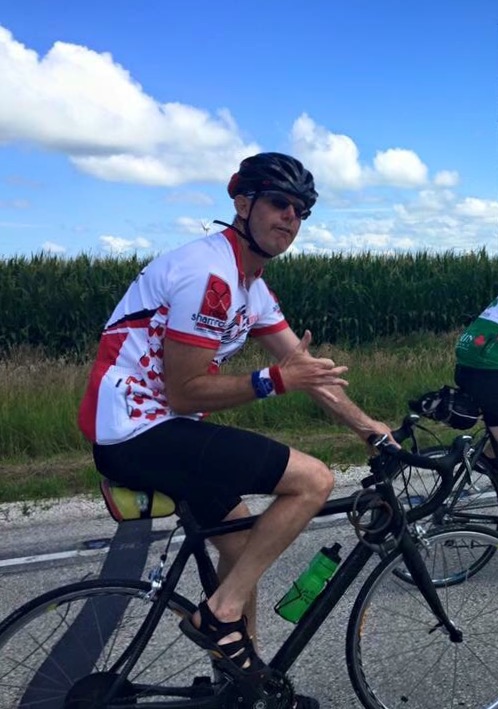“Be with Cancer”
Cancer. There is no other word in the human vocabulary that instills more anxiety, creates greater uncertainty, or harbors more fear than cancer. At the same time, cancer compels human compassion, raises hope, unifies and directs a common purpose.
Everyday there is new discovery or angle in cancer research that brings hope for a cure. Recently President Obama called for a “Moonshot” toward that end. The University of Iowa Dance Marathon hit a new record in donations as students challenged their mind, body, and spirits to vicariously “be” with cancer as they celebrated new “graduates” to the growing number of cancer survivors.
As I reflect on my 30 years of “survivorship” I am reminded that while my disease is gone the journey continues. Leukemia is an insidious blood cancer that baffled scientist and providers as patients, apparently cured, would have relapse upon relapse. I recall a comment by my physician, “Cancer is like a constellation, as we chart its stars, investigate its properties, increase our magnification, we have more to learn than what we knew and what we thought we knew changes.”
 With luck and good timing I never experienced a relapse because medical knowledge and treatments advanced and survivorship increased. Cancer treatments were often more pernicious than the disease they were aimed to treat. Numerous articles in the Journal of Clinical Oncology made a clarion call for more research to understand these long term effects, especially for childhood cancer survivors.
With luck and good timing I never experienced a relapse because medical knowledge and treatments advanced and survivorship increased. Cancer treatments were often more pernicious than the disease they were aimed to treat. Numerous articles in the Journal of Clinical Oncology made a clarion call for more research to understand these long term effects, especially for childhood cancer survivors.
Therein lies the challenge, to set the limited resources of cancer research funding toward finding a cure while also aiding patients who have “beaten” cancer, but have health issues related to their treatments or disease. The void in cancer research funding is enormous and especially lacking when it comes to childhood cancer being a pittance of the National Institute of Health’s budget.
For too long this void has been filled by the concerned parent and family of the afflicted child. From my mother’s concern, compassion and effort the Ronald McDonald House was built to serve the housing, financial and emotional needs of families caring for a loved one during their cancer treatment. Similarly, from John’s compassion and understanding of the survivor’s needs post treatment, arose the Red Shamrock Foundation.
I am truly honored and humbled to support this cause of the Red Shamrock Foundation with full realization I am helping myself to a better quality of life. Our society’s love of sport has created a vernacular to “beat” cancer. The fallacy of this theme is that sport is a “zero sum game.” Cancer survivors are not winners and no one loses to cancer; the journey is just finished at different times. Until a cure is reality, being with cancer is the unfortunate reality. Be with cancer– in spirit–join a trail run, shave your head, light the night, or ride for courage.
Sincerely,
Tim Rossi
Read about Tim’s treatment protocol here.

